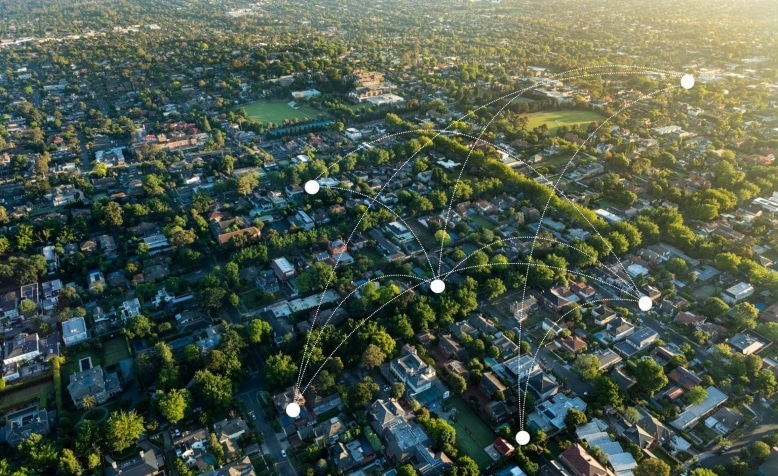Broadband Office Name: Massachusetts Broadband Institute (MBI)
BEAD Award Amount: $147.4 M
Massachusetts Broadband Director: Michael Baldino
Website: https://broadband.masstech.org/
Massachusetts BEAD Program Tracker
| State | IP Vol 1 Approval | IP Vol 2 Approval | Challenge Process Submission Closed | Challenge Process Final Determination Phase Completed | 1-Year Subgrantee Selection Process |
|---|---|---|---|---|---|
| Massachusetts | Yes | Yes | Yes | No | N/A |
Massachusetts BEAD Program Information

Key Updates
The Massachusetts Broadband Institute (MBI) is hosting several Office Hours for their Challenge Process in June and July.
MBI opened its Challenge Process for submissions on June 20, 2024, with a deadline of July 20, 2024. The Rebuttal Phase will follow, beginning on July 26, 2024.
Massachusetts now has Initial Proposal Volume 2 approved.
Massachusetts BEAD Program Plans & Maps
Massachusetts BEAD Program Initial Proposal Volume 2: Overview
*Information is subject to change. Massachusetts is awaiting official approval of Initial Proposal Volume 2 from the NTIA.
BEAD Long-Term Objectives
Current Broadband Availability:
- Over 98% of Broadband Serviceable Locations (BSLs) in Massachusetts have broadband access, making it the 5th highest-ranked state for broadband availability.
Massachusetts Broadband Institute (MBI) Vision and Goals:
- Availability:
- Ensure that every location in Massachusetts has high-speed internet access.
- Adoption:
- Enable every resident to utilize and afford internet services.
- Quality of Service:
- Ensure that every location has reliable and high-quality internet service.
These goals are designed to provide comprehensive broadband access, affordability, and quality for all residents of Massachusetts.
Massachusetts BEAD Program Project Area Design
For the second round of broadband expansion, the Massachusetts Broadband Institute (MBI) will use a municipality-based approach:
- Municipality-Based Applications: Applications will be based on municipalities, allowing for a targeted approach to broadband expansion.
- Second Round Applications: Applicants in the second round can apply for locations they are willing to serve within these municipalities.
This strategy aims to ensure that broadband service providers can focus on specific areas where they are best positioned to improve coverage and service quality.
Massachusetts BEAD Program Extremely High Cost Threshold
After receiving applications from Round 1, MBI will determine the EHC for each project. The strategy includes:
- EHC Determination: Assessing the cost-effectiveness of proposed projects to identify those that meet the threshold for funding.
- Alternative Technologies: Allowing the use of alternative technology types where fiber is cost-prohibitive. However, the design will prioritize end-to-end fiber projects to maximize the impact of the BEAD program.
BEAD Deployment Subgrantee Selection
MBI is asking for the following preregistration evidence from subgrantees and compliance with: Financial capability, managerial capability, operational capability, technical capability, ownership info, public funding info, compliance with laws, cybersecurity/supply chain compliance, and BABA/EHP/NEPA/NHPA compliance.
Primary Scoring Criteria for Priority Broadband Projects
- 32.5% – Minimal BEAD Outlay: Non-State match
- 32.5% – Affordability
- 10% – Labor Standards
Secondary Scoring Criteria
- 5% – Speed to Deployment
- 5% – Open Access
- 5% – Serving CAIs
- 5% – Low-Cost Plan
- 5% – Serving MDUs at Enterprise Level
Based on the current estimates, Massachusetts is optimistic that it has sufficient funding to deploy service to all BSLs.
BEAD Non-Deployment Subgrantee Selection
MBI will implement additional activities to support its three primary goals, which can be scaled across the state:
1. Availability:
- BEAD Planning: Strategic planning to optimize the use of BEAD funds for broadband expansion.
- Gap Networks Program: Identifying and addressing network gaps to ensure comprehensive coverage.
- Final Gap & CAI Program: Closing the final connectivity gaps and providing gigabit connections to Community Anchor Institutions (CAIs).
2. Adoption:
- Digital Equity Planning: Developing comprehensive plans to promote digital equity across communities.
- Digital Equity Partnerships Program: Collaborating with various partners to support digital equity initiatives.
- New Digital Equity Programs: Launching innovative programs to enhance digital inclusion.
- Municipal Digital Equity Planning and Implementation Program: Supporting municipalities in planning and implementing digital equity strategies.
3. Quality of Service:
- Affordable Housing Retrofit Program: Upgrading broadband infrastructure in affordable housing to improve service quality.
- Front Door Program: Ensuring reliable and high-quality broadband service is available at the entry point to every residence.
BEAD Eligible Entity Implementation
Primary Allocation:
- Front Door Program: A portion of the remaining funding will support Digital Navigators, who will guide Massachusetts residents on connectivity, devices, and digital skills. This grassroots effort aims to expand digital inclusion.
Additional Activities:
- Development of the Challenge Process Portal: Creating an online portal for the challenge process.
- Implementation of the Challenge/Subgrantee Selection Process: Managing the selection of subgrantees through a structured process.
- Grant Management Portal: Developing a portal to streamline grant management.
- Technical Assistance to Subgrantees: Providing support and guidance to subgrantees.
- Pre-Marketing Assistance: Helping subgrantees with marketing efforts before project launch.
- Pre-Qualifications Process: Establishing criteria and processes for pre-qualifying subgrantees.
- Running the Grant Program: Overseeing the administration and execution of the grant program.
- Continued Stakeholder Engagement Efforts: Maintaining ongoing communication and engagement with stakeholders.
- Setting Up Manuals and SOPs for Programs: Developing manuals and standard operating procedures for program implementation.
- Performance Dashboards and Analysis Tools: Creating tools for tracking and analyzing program performance.
- Field/Desktop Verification of Work Completed by Subgrantees: Ensuring the accuracy and quality of work done by subgrantees through verification processes.
BEAD Local, Tribe, and Regional Broadband Planning Process
Digital Equity Programs:
- Municipal Digital Equity Planning Program
- Digital Equity Practitioners Group
- Digital Equity Partnership Program
- Community-Based Organization Service Awards
Promotion and Collaboration:
- Statewide Digital Equity Survey
- Broadband and Digital Equity Working Group
- Interagency Collaboration
- Partnership Inventory
- Tribal Engagement
- Listening Sessions/Focus Groups
Oversight and Management:
- The Executive Office of Economic Development (EOED) and MBI oversee all broadband and digital equity initiatives in the state.
Community Engagement:
- Statewide Tour: MBI is conducting a statewide tour to hold 27 focus group sessions and develop a survey to gather information about needs and barriers.
- Listening Sessions: Held 7 listening sessions to gather input from various stakeholders.
- June 13 Summit in Worcester: Over 250 stakeholders attended, marking one of the largest gatherings for broadband in the state.
These initiatives and engagements are designed to enhance digital equity, gather valuable community input, and ensure the effective implementation of broadband programs across Massachusetts.
BEAD Labor Standards & Protection
MBI requires all BEAD subgrantees to submit the following information:
A record of past compliance with federal/employment laws:
- Must address info on deployment projects within the last 3 years.
- Certification form from an Officer/Director level employee of past compliance.
- Written confirmation that subgrantee has disclosed any violations from contractors within the last 3 years.
- Discussion of workforce plan
Plans for ensuring compliance with federal/employment laws:
- How subgrantee will ensure compliance in its labor/employment practices.
- Info on applicable wage scales, wage, and overtime practices for each class of employee expected to be involved in physical construction of the network.
- How subgrantee will ensure implementation of workplace safety committees.
- Comply with the Prevailing Wages Act.
- Other items as outlined in the BEAD NOFO.
BEAD Minority Business Enterprises / Women’s Business Enterprises / Labor Surplus Area Firms Inclusion
Phase 1 – Research & Assessment:
- Identify Target MWBE Employers: Locate minority and women-owned business enterprises (MWBEs) suitable for procurement opportunities.
- Engage MWBE Stakeholders: Build relationships with key MWBE stakeholders.
- Procurement Assessment: Evaluate current procurement practices to identify opportunities for MWBEs.
Phase 2 – Outreach & Partnerships:
- Promotion of Procurement Opportunities: Actively promote procurement opportunities to MWBEs through various channels.
Phase 3 – Reporting & Documentation:
- Documentation: Maintain comprehensive records of the program’s progress and outcomes.
Leveraging Existing Programs and Organizations: MBI intends to collaborate with existing programs and organizations to maximize impact:
- Supplier Diversity Office (SDO)
- Supplier Diversity Program (SDP)
- Center for Woman and Enterprise
- Small Business Strong
- Building for Growth (BFG)
- Disadvantaged Business Enterprise Program
- Utilization of MBE and WBE Firms
Affirmative Steps for Inclusion:
- Solicitation Lists: Place qualified small and minority businesses and women’s business enterprises on solicitation lists.
- Targeted Solicitation: Ensure small and minority businesses and women’s business enterprises are solicited whenever they are potential sources.
- Dividing Requirements: Break down total requirements into smaller tasks or quantities, when economically feasible, to maximize participation by these businesses.
- Flexible Delivery Schedules: Establish delivery schedules that encourage participation by small and minority businesses and women’s business enterprises.
- Utilizing Support Services: Use the services and assistance of organizations such as the Small Business Administration and the Minority Business Development Agency of the Department of Commerce.
- Subgrantee Requirements: Require subgrantees to take the same affirmative steps for their subcontractors.
BEAD Cost & Barrier Reduction
1. Promoting the use of existing infrastructure.
2. Promoting and adapting dig-once policies.
3. Streamlining permitting processes.
4. Streamlining cost-effective access to poles, conduits, and easements.
5. Streamlining rights of way, including the imposition of reasonable access requirements.
BEAD Low-Cost Broadband Service Option
MBI will incentivize subgrantees to offer affordable broadband services through a bonus point system in the application rubric:
- Bonus Points for Low-Cost Service Plans:
- Subgrantees offering a low-cost service plan priced under $30/month will receive bonus points.
- Points will start at zero for a $30/month plan and increase on a gradient scale as the monthly fee decreases, with the highest points awarded for plans costing $0/month.
- Adoption of BEAD NOFO Low-Cost Service Option:
- MBI will follow the low-cost service option criteria as defined in the BEAD Notice of Funding Opportunity (NOFO).
BEAD Middle-Class Affordability
Middle-Class Household Income:
- Between 534,000 and 780,000 households in Massachusetts are considered middle-class and earn less than the median income of $89,026.
- The affordability threshold can be as low as $66.67/month for households making $40,000 annually.
- For households earning the median income of $89,026, the affordability threshold is $134.93/month, based on 2% of monthly income.
Incentive Structure: MBI will award extra points to subgrantees that meet the following affordability and service guidelines:
- Monthly Cost: Plans costing $100 or less per month, with an inflationary adjustment.
- Typical Download and Upload Speeds: At least 1 Gbps for both download and upload.
- Inflationary Adjustments: Align with the Consumer Price Index.
- Latency: No more than 100 ms round-trip latency.
- No Restrictions: Plans must not be subject to data caps, surcharges, or usage-based throttling.

